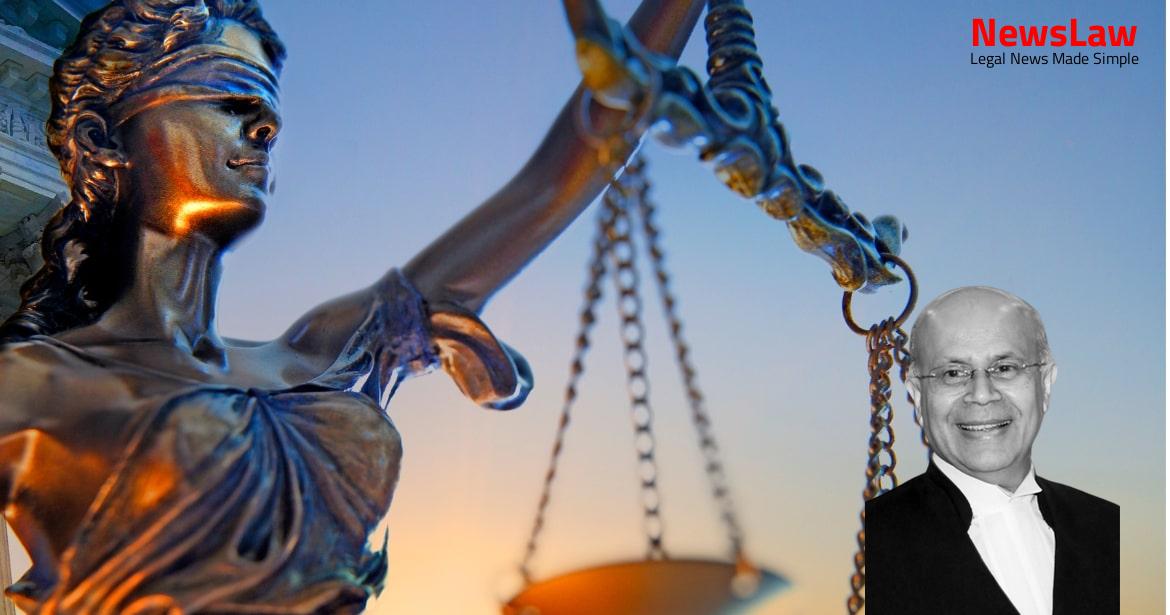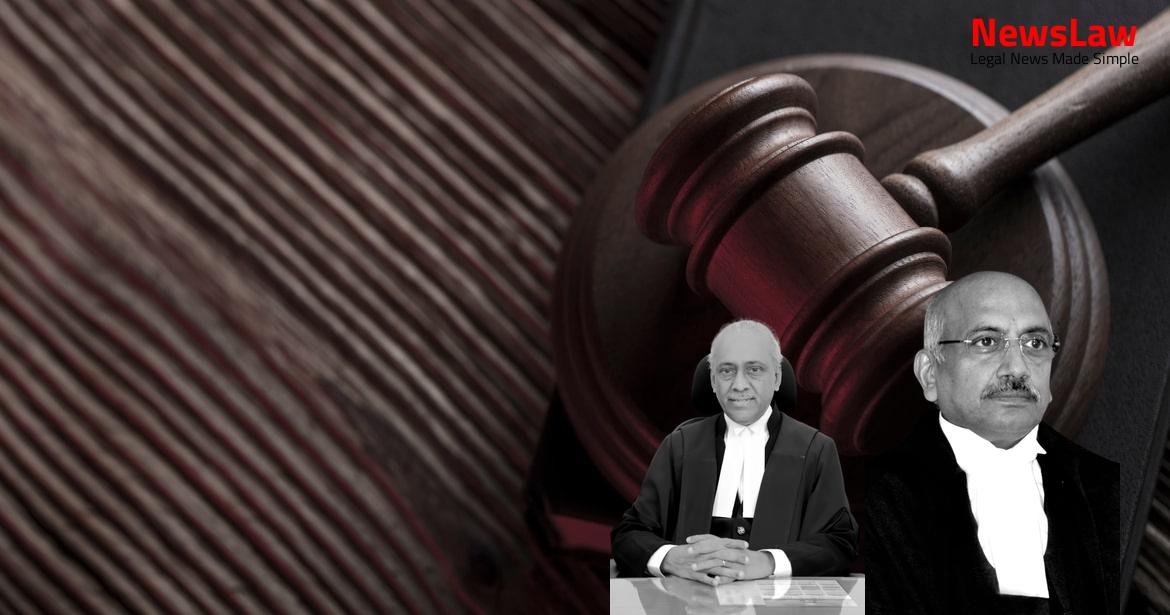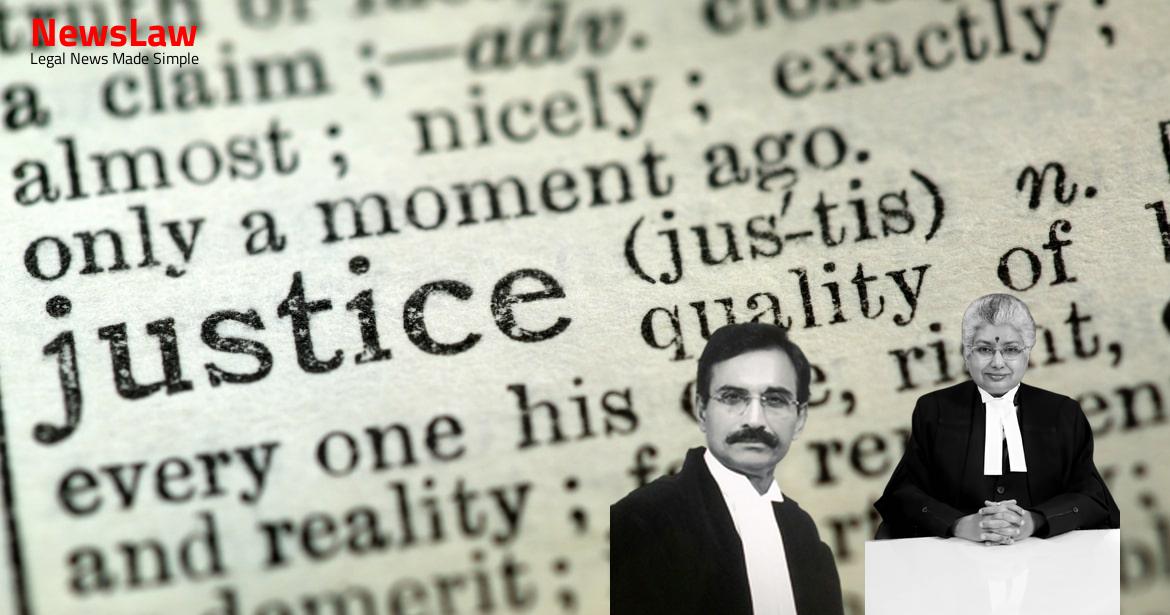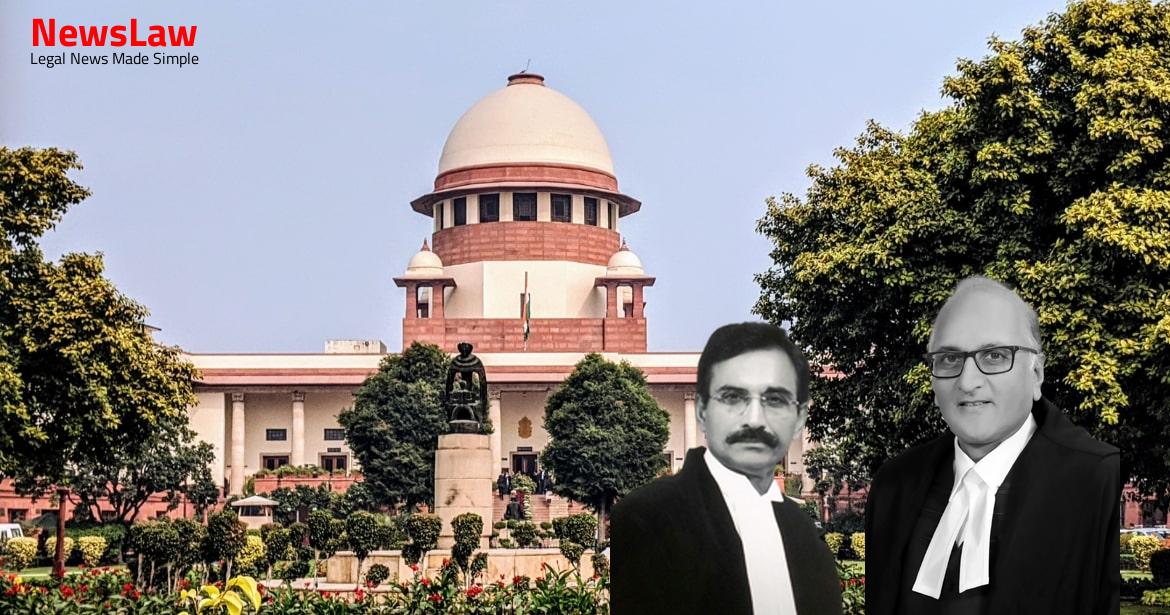The legal analysis of jurisdiction takes center stage as we dissect the complexities of returning a case under Order VII Rule 10. This case summary focuses on the court’s meticulous examination of jurisdiction matters, emphasizing the legal principles at play. Understanding how the court navigates jurisdictional issues is vital in ensuring a fair and equitable resolution.
Facts
- The respondent filed a suit for recovery against the appellant based on a franchise agreement.
- The jurisdiction issue was framed as a preliminary matter and decided in favor of the respondent on 06.09.2016.
- The High Court allowed the revision by the appellant on 05.09.2017 but took no steps to return the plaint to the respondent.
- The respondent then filed an application under Order VII Rule 10 for the transfer of the judicial file from Gurgaon to Delhi due to the advanced stage of the suit.
- No objection was raised under clause 16B of the agreement regarding jurisdiction.
- The Civil Judge allowed the transfer application, which was affirmed in the impugned order by the High Court.
- The submission regarding the advanced stage of the suit in Gurgaon was rejected by the court.
- The Civil Judge, Gurgaon rejected the objection relating to jurisdiction and opined that it needed to be framed as a preliminary issue.
- Order XVIII Rule 15 could not be invoked for return of the plaint as per Rule 10.
- The High Court ruled that the suit at Delhi will proceed from the stage it was at Gurgaon before the return of the plaint, not de novo.
- The appellant filed its written statement and the respondent its replication after the objection was rejected.
- The plaint was returned due to lack of territorial jurisdiction of the Gurgaon court as per the agreement clause 16B.
- The suit was filed on 06.01.2011 and an objection was raised promptly on 26.08.2011.
- The franchise agreement specified exclusive jurisdiction of Delhi courts for settling disputes.
- Subsequent proceedings were stayed, leading to the order of reference for the appeal.
- The High Court’s decision on returning the file to Delhi was not based on transfer jurisdiction under Section 24 but on the advanced stage of the suit.
- The Trial Court justified the decision based on avoiding a potential travesty of justice if the suit had to proceed de novo at Delhi.
Also Read: Analysis of Intent in Fatal Assault Case
Issue
- The question of whether a trial should proceed afresh or continue from the earlier stage after a plaint is returned under Order VII Rule 10 and 10A of the Code of Civil Procedure 1908 is at the heart of this issue.
- The determination of whether a suit shall proceed de novo or continue from the stage where it was pending before the court at the time of returning of the plaint is essential.
- The reference also points towards considering if the conduct of the appellant disentitles them to any relief, regardless of the decision on the main issue of law.
Also Read: Ensuring Fair and Thorough Police Investigations: A Legal Perspective
Arguments
- The petitioner argues that the suit needs to proceed de novo on the return of the plaint
- They cited various cases such as Ramdutt Ramkissen Dass vs E.D. Sassoon & Co., Amar Chand Inani vs The Union of India, Harshad Chimanlal Modi (II) vs DLF Universal Ltd., and Hasham Abbas Sayyad vs Usman Abbas Sayyad to support their position
- They claim that since the suit was initially filed in a non-jurisdictional court in Gurgaon, it must start afresh in Delhi to avoid injustice and prejudice
- They also referenced cases like R.K. Roja vs U.S. Rayudu and Oriental Insurance Company Ltd. vs Tejparas Associates and Exports Pvt. Ltd. to support their argument
- In the case at hand, the respondent’s counsel argued that there was a suppression of material facts in the special leave petition.
- It was suggested that if the court had been made aware of all materials in the counter-affidavit, the special leave petition might not have been entertained.
- The appellant’s initial objection did not include the ground based on exclusion clause 16B of the agreement, focusing instead on the absence of business operations in Gurgaon and defendant no. 2’s non-residency there.
Also Read: Presumption of Genuineness in Legal Documents Case
Analysis
- The legal maxim ‘expressio unius est exclusio alterius’ means expression of one is the exclusion of another.
- The jurisdiction clause in the agreement impliedly excludes the jurisdiction of other courts.
- The reference to ‘return the file’ in the order dated 05.09.2017 did not enlarge the scope of jurisdiction under Order VII Rule 10 for continuance of the suit.
- The order directing the file return attained finality as no appeal was preferred against it.
- The parties clearly indicated through Clause 16B of the agreement that only the court at Delhi shall have exclusive jurisdiction.
- The application for transfer of the file to the court in Delhi was allowed by the Civil Judge in Gurgaon.
- The presentation of the plaint at Gurgaon before a court without jurisdiction did not serve the interest of justice.
- The plaintiff is entitled to exclude the period spent before the court lacking jurisdiction under Section 14 of the Limitation Act.
- The plaint, when presented before the court of competent jurisdiction, is considered as a fresh plaint and the trial is conducted de novo.
- Order VII Rule 10-A was inserted to eliminate the need for serving summonses on defendants when a plaint is returned after defendant appearance in the suit.
- In the case of returns under Rule 10-A, the court fixes a date for appearance in the new court and notifies the parties.
- The proceedings commence de novo after the plaint is presented to the court of competent jurisdiction following its return.
- A clause specifying court jurisdiction is not hit by Section 23 of the Contract Act and is not against public policy.
- The High Court directed for the suit to proceed afresh before the proper court.
- In disputes where multiple courts may have jurisdiction, parties can confer exclusive jurisdiction on one court by agreement.
- If a court deems it lacks jurisdiction, the plaint is returned under Order 7 Rule 10 CPC for presentation before the competent court.
- Order IV Rule 1 and Order V Rule 1 are referred to in the context of instituting a suit and issuing summons when the proceedings are transferred to a new court.
- The use of words like ‘fresh filing’ in Rule 10-A does not indicate continuation of the suit, and fresh summons are issued upon presentation of the plaint to the new court.
- The discretionary jurisdiction under Article 136 of the Constitution was exercised in the case at hand.
- The judgment did not consider previous rulings like Amar Chand Inani vs The Union of India and hence does not have precedential value.
- Modern Construction (supra) established the correct law after considering relevant precedents and there was no contradiction with Joginder Tuli (supra).
- The jurisdiction under Article 136 is plenary and residuary in nature.
- It was noted that the jurisdiction of the court under Article 136 is one of conscience.
- The nature of jurisdiction under Article 136 is unfettered and not confined within definite bounds.
- The discretion to be exercised under Article 136 is subject to the wisdom and sense of justice.
- The court may refuse discretionary relief even if it finds it justified in law in a particular case.
- The court may not interfere in exercise of its discretionary jurisdiction even if a judgment is not wholly correct or in accordance with the law.
- The High Courts and the Supreme Court have limitations on exercising their equity jurisdiction under Articles 226, 32, and 136 of the Constitution.
- In a case where a plaint is presented in a court contrary to an exclusion clause, it is not considered as proper presentation before the court having jurisdiction in the matter.
Case Title: M/S EXL CAREERS Vs. FRANKFINN AVIATION SERVICES PVT. LTD. (2020 INSC 477)
Case Number: C.A. No.-002904-002904 / 2020



